Contextualizing Africa
Let’s get started by putting Africa in its proper context. Africa is not a country. It is the second-largest continent globally- three times the USA and space size that could still accommodate a few more countries. The continent could accommodate China, Europe, and the USA, with the surface area still unclaimed. 65% of the continent’s population is under 35 years old; it is the youngest continent on this planet today. In an extreme prediction by Tim Leberecht, half of the human workforce is expected to be replaced by software and robots by 2036. Nonetheless, this young population still represents great potential. About 2/3 of the world’s arable land is in Africa. More than half of global population growth between now and 2050 is expected to occur in Africa. Africa has the highest population growth rate among major areas, growing at a pace of 2.55% annually in 2010-2015. Before the end of this decade, the agricultural industry in Africa will soon generate a whopping 1 trillion dollars in business each year.
My passion for Africa became an everyday affair in 1998 after an inspiring sermon I heard where the preacher used this text from Isaiah 61:4 KJV: “and they shall build the old wastes they shall raise up the former desolation and they shall repair the waste cities, the desolations of many generations.” This is a consuming obsession for the entire black race’s flourishing but began as a wake-up call for me personally, a stirring ambition to articulate road-maps for nation-building.
Kwame Nkrumah, a Pan-Africanist who was the first president of Ghana in the early ‘70s, envisioned a vibrant and robust continent second to no other in the world, one where its leaders adequately harnessed the vast natural and human endowments of the continent. He says:
“We have here in Africa everything necessary to become a powerful, modern, Industrialized continent… Africa, far from having inadequate resources, is probably better equipped for industrialization than almost any other region in the world.”
But the question remains, are we going to eat potential? Your answer is as good as mine. Five decades later, Kwame Nkrumah’s optimism is far from realization. Successive leadership of the continent, plagued primarily by selfishness and greed after the colonial rule, failed to create a compelling vision that captured Africans’ imagination and transformed that vast potential into reality. About four years ago, I outlined the Top 21 problems of Africa, and three questions provided a framework for my reflection. They are:
- Why do some leaders succeed so well in their endeavors, while others plunge a whole generation into a nightmare?
- What are the expected behaviors of a leader in our rapidly changing society?
- Why are Europeans, Americans, and lately Asians responding so proactively to the notion of globalization and their region’s economic development, while Africa seems to pay lip service to such effect, utterly oblivious to what is happening around the world?
Poverty, diseases, brain drain, and capital flight are among the ills bedeviling the continent. The current crop of leaders across Sub-Saharan Africa does not seem to have the slightest pinch of the proposition to resolve the ills. I have identified trends affecting unified action for various civilizations. From some of these, I want to propose the following twelve building blocks that have worked throughout every society as a basic framework for nation-building in Sub-Saharan Africa that will retain a uniquely “Africana” character. The building blocks were eight initially for me but were further expanded to twelve building blocks through a collaborative effort of one of my good friends and partner in leading a transformational change in Africa. They are:
1. Government
2. Security and Defense
3. Law/Judiciary
4. Organized Religion.
5. Sport, Art, and Culture
6. Engineering and Infrastructure (including Space mission)
7. Education
8. Health Care
9. Media and Communication (Writing and Language)
10. Economic and Commerce (Banking and Insurance, Industry)
11. Agriculture and Earth resources
12. Energy (Hydro/water, Renewable energy (solar, wind), Nuclear, Fossil fuel, Geo-thermal, Bio-fuel)
The Emergence of African Civilization
It is now an open secret and a proven fact that human history began on the African continent, making Africa an authentic source of world history. Africa is arguably the birthplace of art, music, and culture; the Blombos cave discovered in South Africa is an attestation to this. The cave has inside evidence of 140,000 years of human habitation compared to the Lascaux cave in France, dating back to only 35,000 years ago. Africa is also arguably the place where writing first began with the Hieroglyphs Egyptian writing, which some scholars now argue started independently side by side with the Mesopotamia writing. Agriculture and the system of laws have also been traced to the ancient dwellers of the African Continent. Africa gave the world blueprints for civilization, as with the Ancient Egyptians. It is not right to say that Africa did not have a history before the Europeans arrived, as some presume, in patronizing sympathies.
Africa has not been static and isolated. Africa has a rich heritage and ingenuity that has traveled worldwide and evolved into some of the most outstanding human achievements. But as Arnold Toynbee (1889-1975) observed in his argument about the civilization life cycle, Africa lost its pre-modern life civilization. According to him, great civilizations always begin with the initial growth, then political crises set in, which, in turn, lead to it beginning to witness large, coercive imperial state structure and finally disintegration, not of external pressure most of the time, but because of internal problems. Disintegrative tensions often manifest through the following avenues as observed by Toynbee; pervasive obsession with the past or future, rampant, destructive nationalism, decisions to follow the path of other civilizations, idolization of a hero leader, or general loss of creativity through indolence and decadence. Toynbee concluded by saying that “civilizations die from suicide, not by murder.” Frank Herbert echoed this sentiment by saying that the “decline and fall of civilization is a result of sloth and loss of creativity.” Anyone who wants to understand why the ancient African civilization fell could encounter evidence of such political suicides and obstacles to innovative spirits.
Like Rauschenbusch, I struggled with tackling the leadership problem, loss of creative ideas, and the endemic poverty in Sub-Saharan Africa. Still, I have found some solace in God working through the collective life of humanity. I intend to bring about a notion of God’s Kingdom into every sphere of influence much the way Washington Gladden also conceived things: “Every department of human life – the families, the schools, amusements, art, business, politics, industry, national policies, international relation – will be governed by the Christian law and controlled by Christian influences.” Among other examples, despotic Catholicism up through the 14th century present caveats to secular power in religious hands, but principled approaches to the Reign (βασιλεία) of God offer anchors for reform and righteousness.
The Two Militating Forces Working Against the Progress of Africans
My two main theses, arising from my reflection of Africa’s 21 Top Problems, are Leadership and Poverty from an article I wrote about four years ago. The latter is an extension of lousy governance/leadership. My question again is, why do some leaders succeed so well in their roles, while others plunge a whole generation into a nightmare? To answer, with Peter Drucker’s size-up of the matter: “The Bottleneck is always at the top of the bottle.”
Leadership problems systematically infect the top down to the rest of the body, presenting the principal issue to contend with in every crisis of civilization and human life. Disturbed by the collapse of German values and the pent of the rage of poverty scapegoated upon her fellow German Jews during the Holocaust, Hannah Arendt reflected: “Poverty itself is a political, not a natural phenomenon, the result of violence and violation rather than of scarcity” But here again, we see poverty linked to ineffective leadership and lack of political willpower by the government in place.
Initiating transformative change begins with this first question about why everything is already dysfunctional. My understanding of transformative leadership will predicate Thurman’s theology, which locates his faith within the socio-cultural context of Jesus Christ and how his teachings speak to those who have their back against the wall. Africans have long had their back against a wall. In particular, Sub-Saharan Africa citizens have been left at the marginal end of life without reprieve, without any hope of an assured flourishing life. Thurman counseled that the same religion that was once on the side of the oppressed, over time, became the most powerful as a tool of oppression, oppression which must not be confused as possessing the same intent in the mind of Jesus Christ during his earthly ministry. My job is to rediscover the truth and the power of the gospel so that it will speak for those to whom it is originally intended.
Most significantly, Thurman upheld the religion of Jesus in a grand vision of love-ethic, where the love for one’s neighbor is central. He argued that the love of Christ must be orchestrated towards human needs and even to the enemies. This is precisely what I wish to do proposing road-maps.
Another theological theme connected to my role as a transformative leader is the fictional character’s approach in Charles Sheldon’s book In His Steps, Rev Henry Maxwell, to address the structural and systemic problems that are causing rottenness and decay in Sub-Saharan Africa. Dr. Martin Luther King Jr. was one leader I value so much, based on his social reform approaches. One theme that seems to rise above every other theory he encountered during his intellectual pilgrimage as a transformational leader was the philosophy of nonviolence as a direct approach to fighting racial injustice. In Sub-Saharan Africa, we will not be dealing with racial injustice, but his nonviolence resistance method is critical for propagating my roadmap for nation-building. Impressively, Dr. King’s strategy is the best available to oppressed people and for their struggle for freedom and human dignity. It was a journey that took him on an intellectual pilgrimage, starting with his early experience as a teen in Atlanta, witnessing segregation laws and the brutalization of black folks by the police that grew out of such law. Similarly, several injustices meted out to the African Americans in courts. The Ku Klux Klan’s discriminatory activities all added to a resentment that he harbored against the white folks.
Dr. King’s encounter with Thoreau’s essay at Morehouse was his first intellectual contact with nonviolent resistance theory. Dr. King confessed to having read the essay several times, being fascinated by the ideas it contained. Dr. King continued his intellectual quest at Crozer Theological Seminary, seeking a method that could eliminate social evil. At Crozer, he encountered Rauschenbusch, Plato, Aristotle, Hobbes, Bentham, Mill, and Locke. These thinkers and philosophers greatly stimulated King’s thinking. His intellectual quest led him further into Marx and communism, where he was convinced that the truth was not found in Marxism or traditional capitalism. He asserted that “the kingdom of God is neither the thesis of individual enterprise nor the antithesis of collective enterprise but synthesis which reconciles the truths of both.” Other notable influences on Dr. King include: A.J. Muste, Reinhold Niebuhr, and Gandhi. Dean Muelder, Dr. Chalmers, Edgar S. Brightman, and L. Harold Dewolf, all of Boston University. Dr. King summed up his intellectual odyssey by stating that: “in 1954 I ended my formal training with all these relatively divergent intellectual forces converging into a positive social philosophy. One of the main tenets of this philosophy was the conviction that nonviolent resistance was one of the most potent weapons available to oppressed people in their quest for social justice”.
This nonviolence method is essential to me as I reflect on the best way to confront oppressive and incompetent leadership across Sub-Saharan Africa. I don’t see any need for me as a transformative leader to lead a violent revolt or bloody revolution to bring the old glory days back to Africa as many in Sub-Saharan Africa are wishing. I simply believe in the power of resolving all our systemic and structural problems by employing the tactic of a nonviolent direct approach. It is subtle in its working and very useful. I believe that my academic journey at Boston University is preparing me for this tremendous task. I am fully persuaded to combat the structural and systemic problems in Sub-Saharan Africa occasioned by self-serving leaders’ ruthlessness and political ineptitude; strategies such as nonviolence are necessary. I know that my doctoral program at Boston University is preparing me for this.
My tasks are outlined below and identified in three parts:
- Task 1: How do I/we formulate a compelling vision and mobilize Africa’s people around an idea, especially around the notion of building a distinct civilization in Sub-Saharan Africa? My/our vision will be to adapt the twelve building blocks that I have identified that have been used in every known and successful civilization to reflect the cultural DNA of black people in Sub-Saharan Africa. My goal will be to domesticate those building blocks to be thorough “Africana.”
- Task 2: How do I/we build a winning culture where creativity and innovation become its hallmark? To become relevant in the global arena, Africans need to embrace creativity and innovation. We have to re-invent ourselves to bring back the lost glory.
- Task 3: How do I/we make sense of what is relevant today against what is appropriate for the future? By this, we are seriously asking ourselves what we have in the present that can be retained for the common good tomorrow, and what are the things that have lost their place of relevance in a society that we need to discard?
The Strategic Approach
“Strategy gives us the structure to deal with change” – Roberta Katz
The problems in Africa today are not all-natural/spiritual as many people have thought. They are simply systemic and structural. The key to solving them is the right strategies. In his powerful book In His Steps, Charles Sheldon’s fictional character Rev. Maxwell, after his ministry’s defining moment, through the encounter he had with the unnamed poor man, was made to develop strategies. He also acted as a prophetic voice for the oppressed and those that are socio-economically marginalized. He began to focus on the strategic approach of resolving the systemic and structural problems in the society by leading his congregation to take the initiative. Through strategic systemic and structural reform, Dr. King also rose to become an iconic figure of social transformation by advocating the all-important tool of nonviolent direct resistance to societal evils. That was Dr. King’s strategy and it was well deployed until the civil rights movement became a force that could no longer be resisted.
We Need to Throw Away Our Old Habits
“In the end, it is important to remember that we cannot become what we need to be by remaining what we are” – Max De Pree (Former CEO of Herman Miller)
The bad news is that Africa is currently stuck in the mud of time. We are only moving in a flat circle and thinking inertia is progress anyway! When you see specific organizations, countries, or states which have failed to engage in a strategic mission productively, it’s because they’re stuck in the way things have been.
Sub-Saharan Africa’s deplorable state that we currently witness must signify an end of certain practices and processes that no longer work. We must begin to initiate an uneasy transitional journey into a new way of life by emphasizing the role of leadership development and effective deployment of human resources. My mission is to devote the rest of my life to a strategic task by developing and articulating the transitional journey and new workable processes not by violence but through a nonviolent direct approach.
To this end, I want to challenge every progressive African to join me as we commence on a journey of societal re-engineering of the Sub-Saharan Africa by focusing our attention on providing leadership resources that effectively address the building blocks outlined in this paper. This will be done through our Africana Leadership Digest blogging platform that I have created. The platform will be an avenue for crystalizing ideas for transformational change and an ideological arena for nation-building in Sub-Saharan Africa. Our ultimate goal will be to promote a combination of creative, inspired, strategic, shared, and uncommon thinking. Every progressive mind will be allowed to post articles, produce write-ups that can initiate a transformational change in Africa and I hope you can join me in this race to rewrite the fortune of Africa.
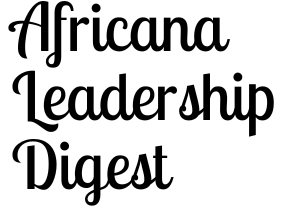
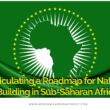

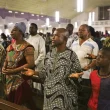

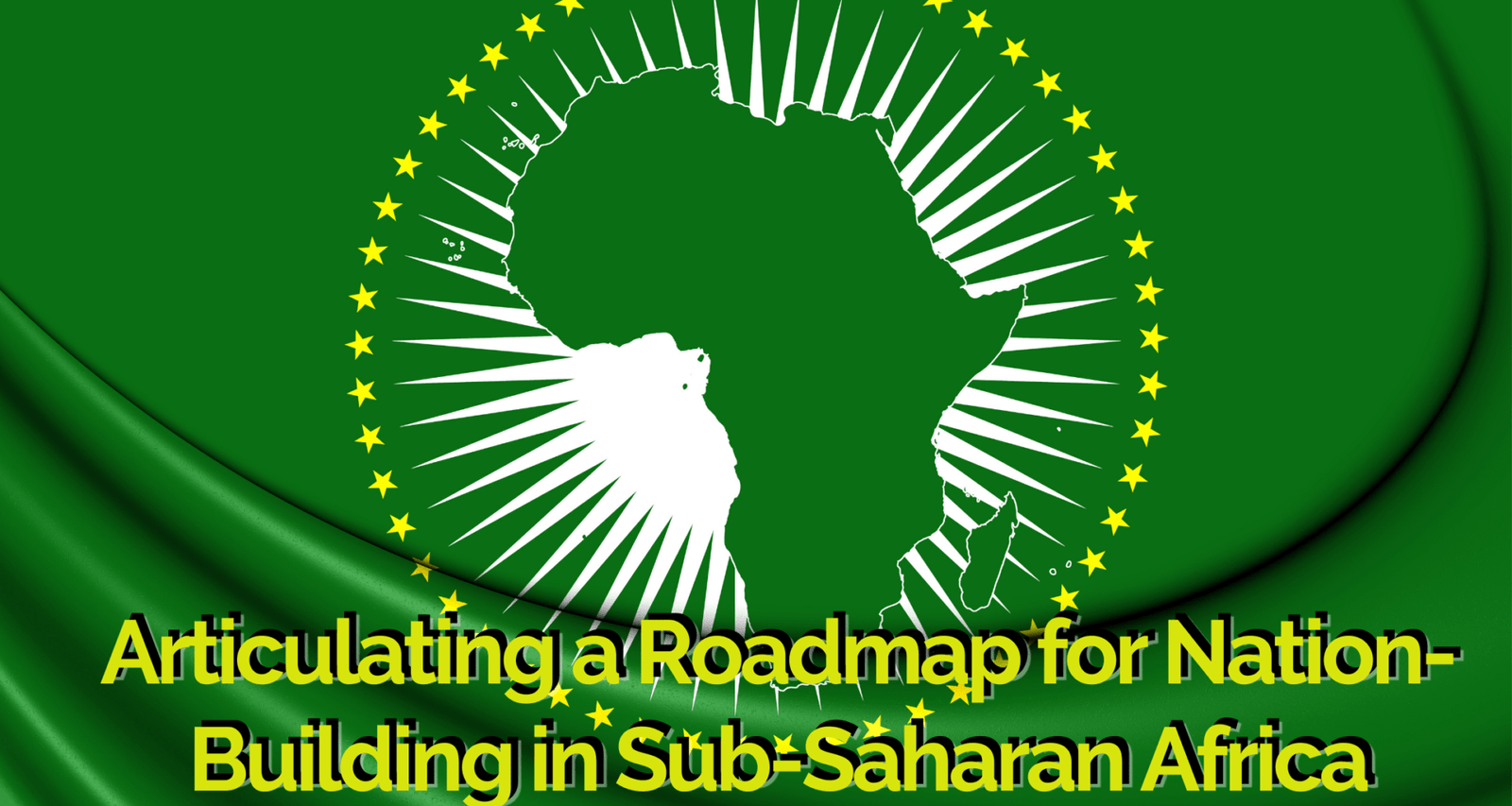
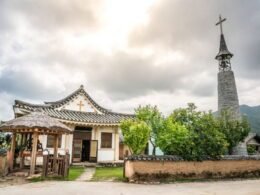
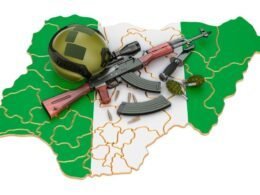

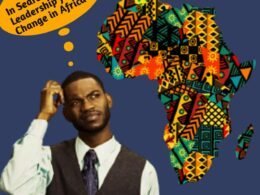
It’s hard to find well-informed people on this subject, however, you seem like you know what you’re talking about! Thanks
Thank you for the compliments
Thank you for your comments